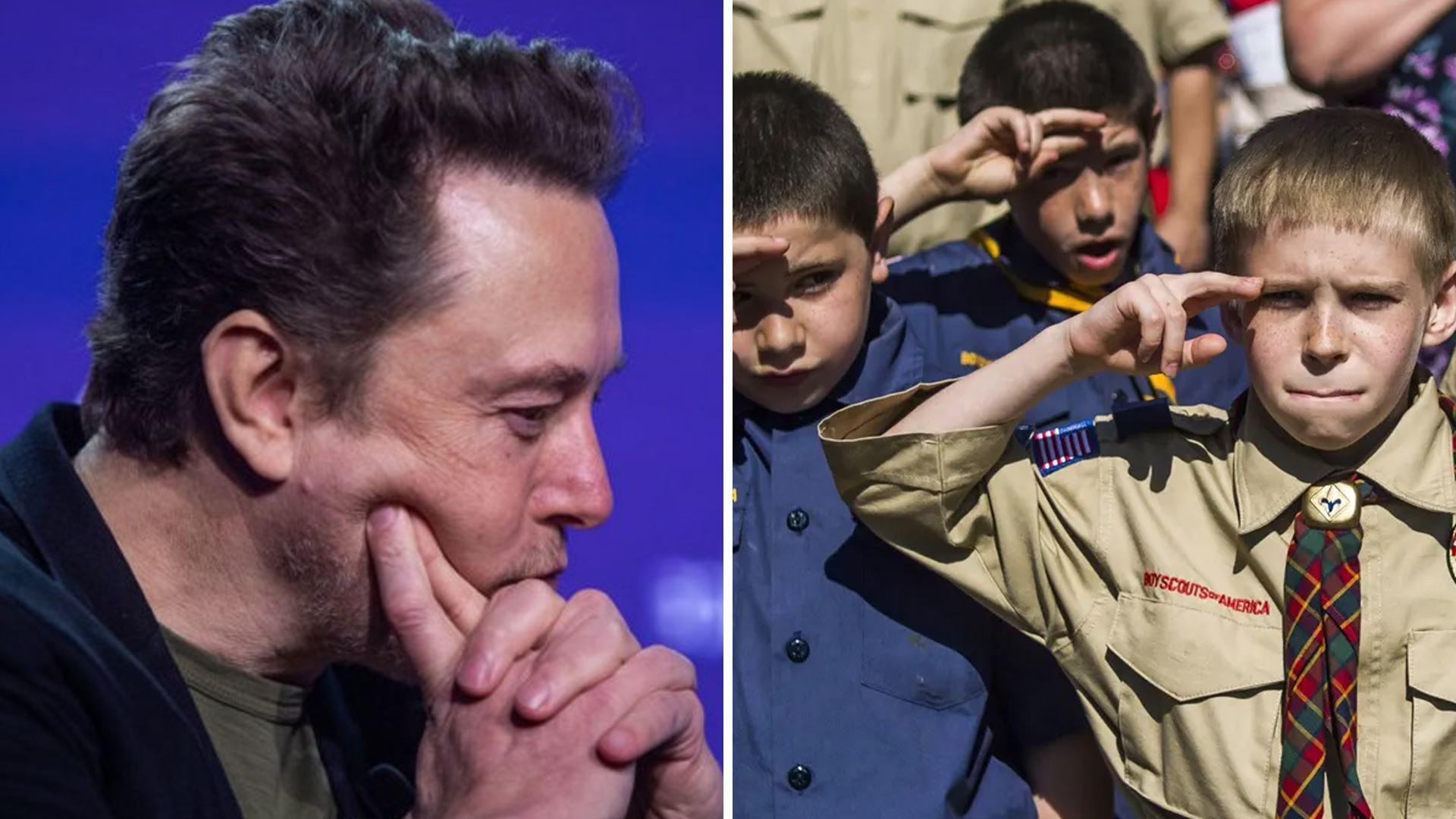
Billionaire Elon Musk, known for his bold moves and unapologetic stances, has once again made headlines—this time by withdrawing a whopping $150 million donation from the Boy Scouts of America. The decision, which Musk described as a stance against so-called “woke organizations,” has sparked a wave of controversy, with critics and supporters alike debating whether this move is a defense of traditional values or a politically charged statement.
The Boy Scouts of America, long considered a symbol of American heritage and community-building, has faced its share of challenges in recent years. From bankruptcy proceedings tied to abuse claims to shifts in membership policies that now embrace LGBTQ+ individuals and girls, the organization has been navigating a modern identity crisis. For Musk, it seems, these changes have crossed a line.
In a public statement posted to his X platform (formerly Twitter), Musk declared, “I can’t in good conscience support an organization that prioritizes ideology over its core mission. My money will not fund woke agendas.” The post immediately went viral, igniting a firestorm of reactions. Supporters of Musk praised his decision, arguing that the Boy Scouts have strayed too far from their original purpose. On the other hand, critics accused Musk of using his wealth to impose his political and cultural beliefs.
The withdrawn $150 million was reportedly intended to fund STEM programs for underserved youth within the organization, a cause Musk has championed through his various ventures, including SpaceX and Tesla. By pulling the plug on this commitment, Musk has not only sent a message to the Boy Scouts but also to other organizations reliant on philanthropy: adapt to my vision, or lose my support.
While Musk’s critics decry this as an abuse of power, others see it as a wake-up call for nonprofit organizations. Musk is hardly alone in his concerns over the influence of “woke culture.” A growing number of high-profile donors are beginning to question the direction of the institutions they support. Musk, however, stands out for the sheer scale of his withdrawal and the bluntness of his reasoning.
In response to Musk’s move, the Boy Scouts of America released a measured statement, expressing disappointment while reaffirming their commitment to inclusivity. “We remain dedicated to preparing young people for leadership and service in a diverse and evolving world,” the statement read. However, the loss of such a significant donation is likely to have a profound impact on the organization’s ability to fund future programs, particularly those aimed at reaching marginalized communities.
This is not the first time Musk has taken a public stand against what he perceives as “woke culture.” Over the past few years, he has become an outspoken critic of progressive movements, frequently taking aim at topics such as gender identity, corporate diversity initiatives, and cancel culture. His rhetoric has endeared him to conservative circles while alienating many on the left, solidifying his role as a polarizing figure in both the tech world and broader societal debates.
The implications of Musk’s decision go beyond the Boy Scouts. It raises important questions about the evolving relationship between philanthropy and ideology. Should wealthy individuals like Musk have the power to influence the missions of nonprofit organizations? Are organizations justified in adapting to societal changes, even if it risks alienating traditional supporters? And perhaps most critically, who gets to define what is considered “woke,” and at what cost?
For Musk, the answer seems clear: he will not hesitate to align his financial power with his personal beliefs. For the Boy Scouts and similar organizations, this presents a difficult dilemma. In an era where diversity and inclusion are becoming central tenets of many institutions, the backlash from traditionalists like Musk could create significant financial and ideological challenges.
This incident also highlights the fragile balance nonprofits must strike in today’s polarized landscape. While adapting to modern values may attract new members and donors, it also risks alienating established supporters. For the Boy Scouts, the fallout from Musk’s decision could serve as a cautionary tale for other organizations navigating these turbulent waters.
As the dust settles, one thing is clear: Musk’s withdrawal of $150 million is more than just a financial decision. It is a statement, a challenge, and perhaps even a warning. Whether it will inspire change or deepen divisions remains to be seen.
But for now, the Boy Scouts of America must grapple with the loss of a significant ally—and the realization that their path forward may be fraught with new challenges.











